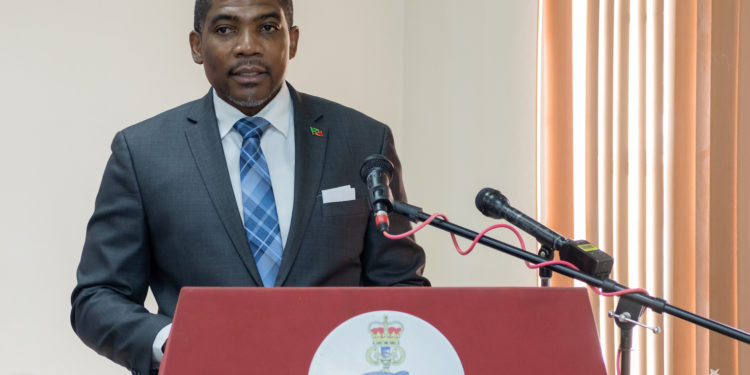I welcome all of you to this most important and critical meeting of IMPACS here in St. Kitts and Nevis. I wish to welcome the CARICOM Crime Gun Intelligence Unit (CGIU) Sensitization and Awareness sessions. The importance and timeliness of this workshop cannot be underestimated particularly against the backdrop of increased instances of violent crime involving the use of illegal firearms in our countries.
Here in St. Kitts and Nevis, we can give testimony to this as in the past year, we recorded several incidents of gun violence. Further solidifying my point is my country’s current reality where our law enforcement agencies are fully engaged to arrest a crime spike, we have been experiencing for the month of April. St. Kitts and Nevis is not immune to the increased incidence of firearms-related crime. Our law enforcement agencies are fully engaged to arrest this menace to our society.
Almost eighteen years ago, in July 2006, CARICOM Impacts was born out of a collective desire to reduce gun trafficking and violence in our region. We have achieved much since then. We have benefited from capacity-building initiatives, explored avenues for sustainable intervention programmes, and implemented international and regional commitments that focus on the reduction of firearms-related violence. We have collaborated with various partners and stakeholders on policy issues that redound to the benefit of our region. We continue to work at finding new and innovative ways to advance security. However, like anything else, there is much more work to be done and improvements to be had.
The presence and prevalence of illegal firearms have been the bane of our existence in the Caribbean region for quite some time. It follows that gun violence is a form of crime with which we have long been embattled. There is not a single firearms and ammunition manufacturing facility located here in the Caribbean, yet our small island developing states have been locked in this tenuous fight to preserve the lives of our people – our most precious resource. Every life is indeed precious, and every life must be valued and protected. In spite of our best anti-crime and border management efforts, this scourge has stubbornly grown and evolved with us. Hence the complexity of the matter.
The trafficking of illegal weapons into any nation is a direct breach of its borders and a threat to the safety and security of every man, woman, and child therein. Such actions serve only to erode the efficacy and integrity of the national security apparatuses of our countries here in the Caribbean. As a people and as a nation, it is our national duty to learn all that we can in order to arrest this plague and rid our societies of the dark veil of gun violence.
This workshop is being facilitated by officials from CARICOM IMPACS and the United States Government partners’ agencies. Over the next few days, its sessions will outline the purpose and objective of the CGIU, as well as explore the role of Member States with respect to information and intelligence sharing with the CGIU.
I look forward to engaging in robust and substantial dialogues with my CARICOM and international colleagues for the purposes of buttressing our maritime security strategy; identifying potential new threats; and sharing information vital to the strengthening of our national security systems. I have every confidence that these sessions will be immensely fruitful and provide us with actionable information to assist with charting the course to an era free of gun crime. Let me highlight of course, that it requires the whole region, with our international partners, to deal with the scourge of the trafficking of guns across this beautiful region.
Thank you all very much!
-30-











